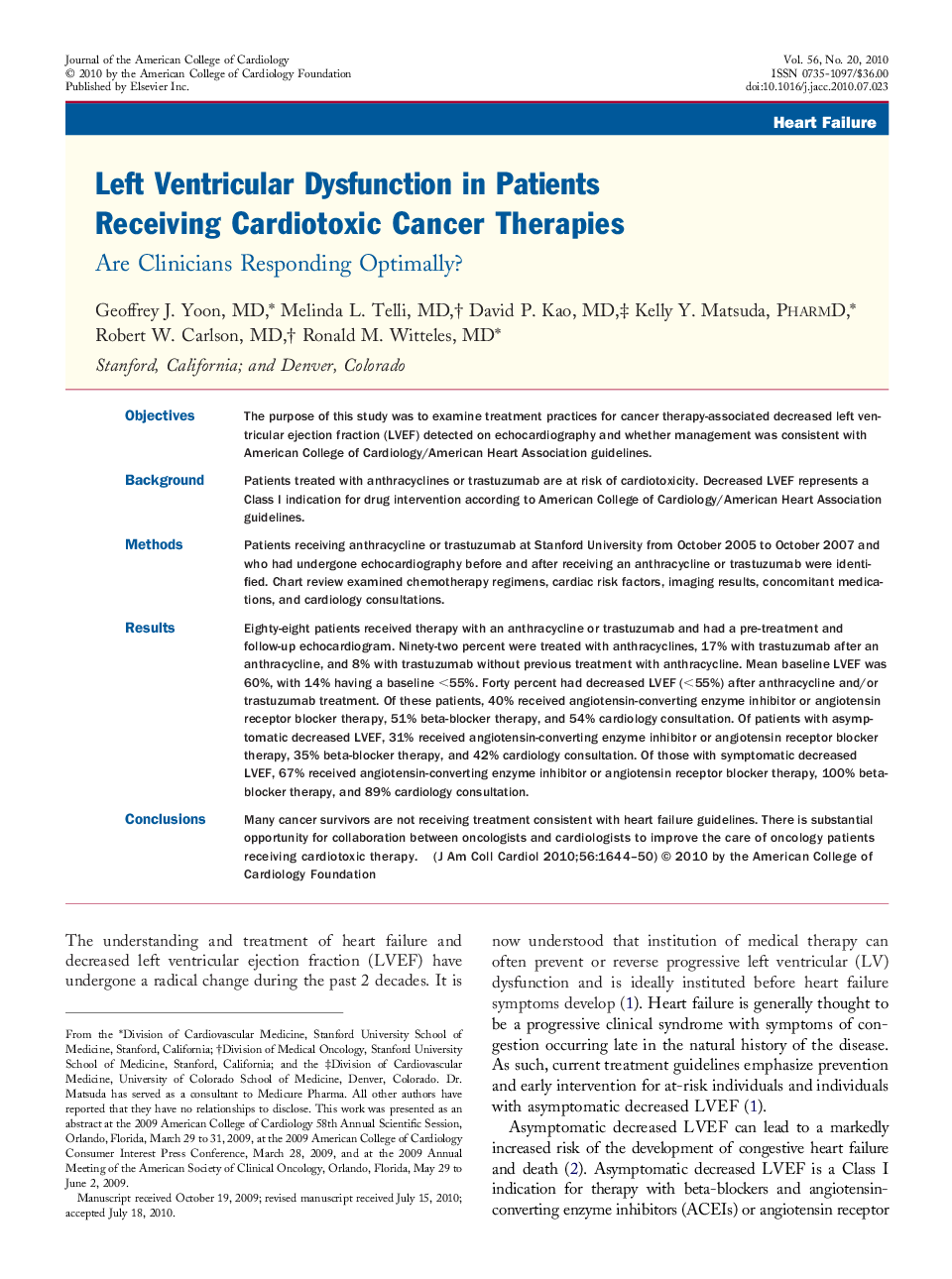| کد مقاله | کد نشریه | سال انتشار | مقاله انگلیسی | نسخه تمام متن |
|---|---|---|---|---|
| 2948719 | 1577290 | 2010 | 7 صفحه PDF | دانلود رایگان |

ObjectivesThe purpose of this study was to examine treatment practices for cancer therapy-associated decreased left ventricular ejection fraction (LVEF) detected on echocardiography and whether management was consistent with American College of Cardiology/American Heart Association guidelines.BackgroundPatients treated with anthracyclines or trastuzumab are at risk of cardiotoxicity. Decreased LVEF represents a Class I indication for drug intervention according to American College of Cardiology/American Heart Association guidelines.MethodsPatients receiving anthracycline or trastuzumab at Stanford University from October 2005 to October 2007 and who had undergone echocardiography before and after receiving an anthracycline or trastuzumab were identified. Chart review examined chemotherapy regimens, cardiac risk factors, imaging results, concomitant medications, and cardiology consultations.ResultsEighty-eight patients received therapy with an anthracycline or trastuzumab and had a pre-treatment and follow-up echocardiogram. Ninety-two percent were treated with anthracyclines, 17% with trastuzumab after an anthracycline, and 8% with trastuzumab without previous treatment with anthracycline. Mean baseline LVEF was 60%, with 14% having a baseline <55%. Forty percent had decreased LVEF (<55%) after anthracycline and/or trastuzumab treatment. Of these patients, 40% received angiotensin-converting enzyme inhibitor or angiotensin receptor blocker therapy, 51% beta-blocker therapy, and 54% cardiology consultation. Of patients with asymptomatic decreased LVEF, 31% received angiotensin-converting enzyme inhibitor or angiotensin receptor blocker therapy, 35% beta-blocker therapy, and 42% cardiology consultation. Of those with symptomatic decreased LVEF, 67% received angiotensin-converting enzyme inhibitor or angiotensin receptor blocker therapy, 100% beta-blocker therapy, and 89% cardiology consultation.ConclusionsMany cancer survivors are not receiving treatment consistent with heart failure guidelines. There is substantial opportunity for collaboration between oncologists and cardiologists to improve the care of oncology patients receiving cardiotoxic therapy.
Journal: Journal of the American College of Cardiology - Volume 56, Issue 20, 9 November 2010, Pages 1644–1650